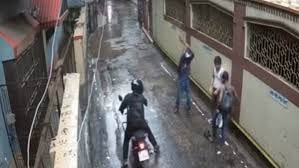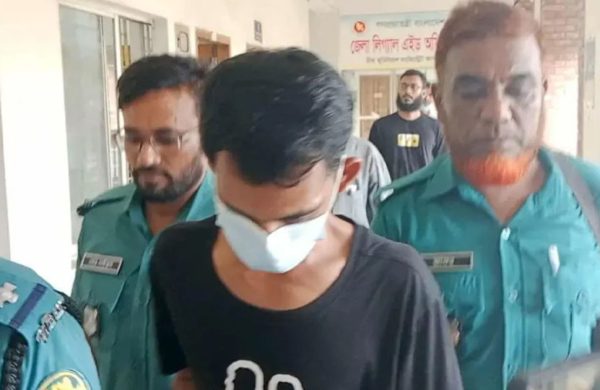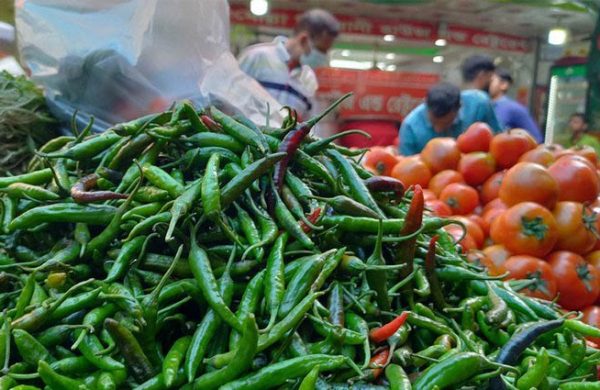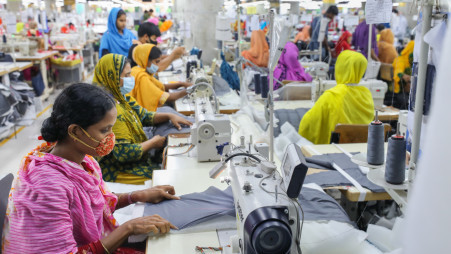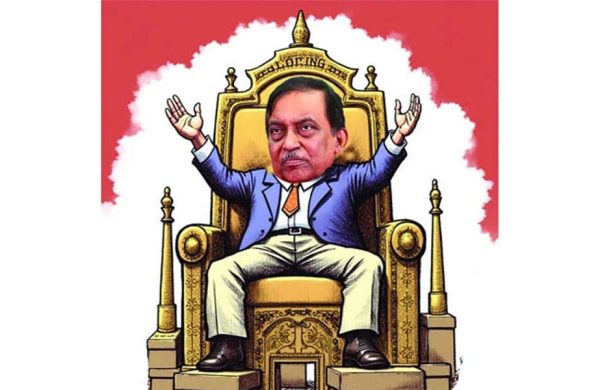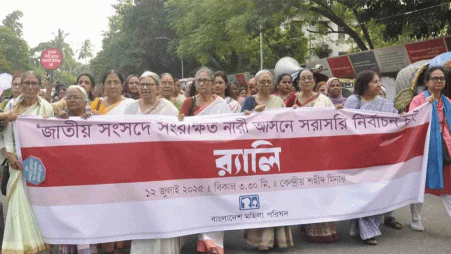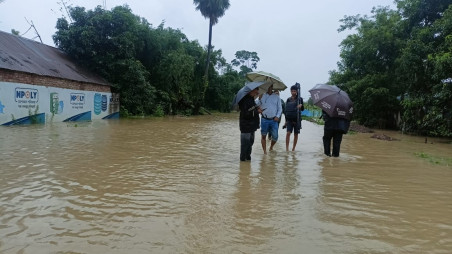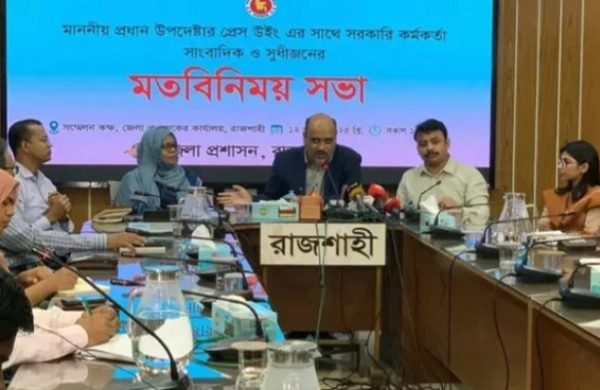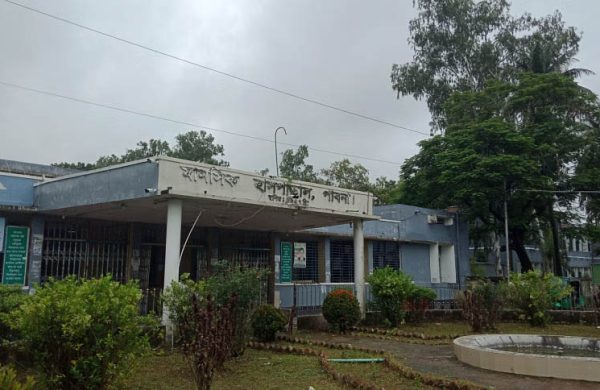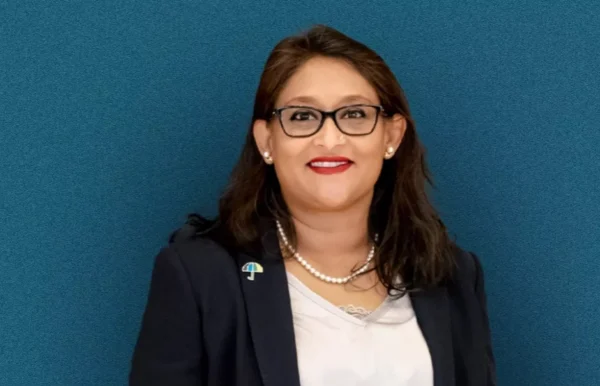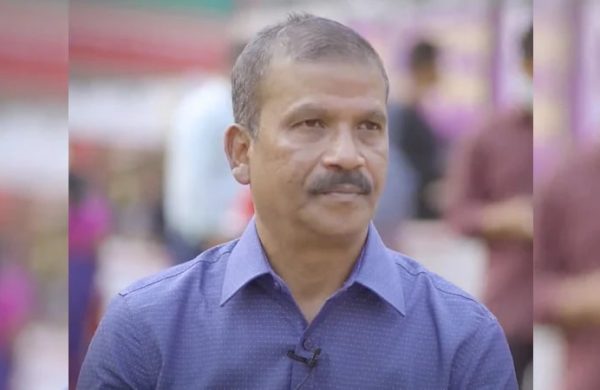Developing newspaper reading habit: Sheikh Hasina revisits memory lane
- Update Time : Friday, October 9, 2020

FBD Desk:
Prime Minister Sheikh Hasina has written an article revisiting her memory lane – how newspaper became an essential element of her everyday life and how she developed the habit since childhood being influenced by her father Bangabandhu Sheikh Mujibur Rahman. The write-up is the revised version of a previous piece of hers that appeared in a supplementary issued by a TV channel.
Following is the article:
Tale of Newspaper Reading
By Sheikh Hasina
After waking up in the morning, we all used to gather, one by one, at my mother’s bedroom. With a cup of tea in everyone’s hand and newspapers scattered on the bed . . . Everyone read a news item one after another and others listened to it sincerely and gave their opinions on it. Sometimes, debates continued there on what was written in the newspapers or what messages the papers wanted to give. All gave opinions as per their respective thoughts. In this way, the morning’s tea party and newspaper reading gained momentum.
Our days would have started in this way. It would have continued for at least three hours. My father got ready to go out. We also got ready to go to school. My father was very punctual in going to his office. We got the lesson of punctuality from him.
Noticing our newspaper reading and the different opinions we gave, one day my father said: “Tell me, who read which news items more attentively.”
We got surprised. Nobody could tell a word. Kamal, Jamal, Rehena, Khoka uncle, Jeny and I – we all were there. Even, little boy Russell was also among us. He did not read but was busy to snatch away newspapers.
Perceiving that we cannot say anything, my father himself said who was interested in which news. We were surprised. How attentive my father was! My mother read most the inside small news items, particularly those on social issues. She also observed what happened where. Kamal read sports news most. Jamal did the same. I was busy with literature pages and cinema news. So, everyone was interested in particular issues.
From her early age, Rehena had special attention to newspapers. Sitting in veranda and taking her on the lap, my father used to take tea and read newspapers. When Rehena saw newspapers, she wanted to take it – she had such an attitude that she herself would read it. And then, when we came to Dhanmondi residence, she started reading newspapers with us. When she grew up a little, she built a habit of reading newspapers sincerely. She used to read every news item whether it was cinema news or others. There were many stories, poems and quizzes in the page for the younger – Rehena read all those attentively.
Rehena now lives in London but she reads the newspapers of the country regularly through online. She not only reads newspapers but also sends me messages instantly once she finds any news of people’s sufferings, asking me to help someone or take steps and questioning why the incident took place there. For example, it was an incident that took place during the coronavirus pandemic. A beggar saved money through begging to build his house but he donated his money for the treatment of Covid-19 patients. The news of such a generosity jolted Rehena’s mind very much. She informed me of the matter immediately. We have built a house for him (the beggar). In this way, we have so far been able to stand by many people only for generous human values of my younger sister; for her habit of newspaper reading. Staying abroad, she always thinks about the welfare of the country’s people. Collecting news from newspaper pages, she serves the people.
Kamal and I passed our childhood days in the village home of Tungipara. At that time, it took two nights and a day to go to Tungipara from Dhaka. That means, if we boarded on a steamer in the evening of a day, we had to pass the next day on the steamer and then it reached Patgati station at late night. And from there, it took two to two and a half hours to reach Tungipara by boat.
That’s why newspapers did not reach that area regularly. That time, we could not learn what was called newspaper reading. But one newspaper used to come to our house. We observed that adults had a huge interest in reading it.
We came to Dhaka in 1954 when there were ups and downs in politics. We did not get company of my father. He was elected as a member of provincial assembly. He had become a minister too. As he was very busy, he used to return home at the dead of the night when we were already asleep. In the morning, Kamal and I went to school. Sometimes, when my father returned home to take launch, we met him. This little time was very precious for us. Even if we got father’s affection and love for a smaller time, it was a big gain for us.
He sacrificed his life for the people of Bengal. He dedicated the whole time in his life for the welfare of the deprived people of Bengal.
Then he was detained in jail. When our father was free (out of jail), we hardly got his company due to the crowd of people. And when he was detained in jail, we met him for only one hour in every 15 days. That was our life!
My mother used to relieve all of our sorrows with her affection and love. And my grandparents and uncle Sheikh Abu Naser used to meet all of our demands. He brought us everything we needed. And my father’s cousin Khoka uncle used to stay with us always. Staying with my mother, Khoka uncle extended cooperation to every work from taking us to school and going to lawyers’ residences for the regarding the cases filed by the Pakistani government against my father.
My mother liked to read. My grandfather used to keep various types of newspapers in the house. ‘The Unfinished Memoirs’ written by my father contained the information of my grandfather’s buying and reading of newspapers. From then, my father made his habit of newspaper reading. And we learnt to read newspapers from him.
My father had intense personal affiliation with newspaper. When my father was studying in Kolkata, he was involved with the publication of a newspaper at that time. Mr. Hashem supervised the newspaper and Tofazzal Hossain Manik Miah served as its editor. My father was involved with the publicity of the newspaper.
Two newspapers named ‘Millat’ and ‘Ittehad’ were also published. My father was also involved with those newspapers. In 1957, my father got involved with another newspaper named ‘Natun Din’. Poet Lutfar Rahman Zulfiqar was its editor.
After the creation of Pakistan, the ‘Ittefaq’ newspaper was published with the financial assistance of Huseyn Shaheed Suhrawardy. Tofazzal Hossain Manik Miah was the editor of the newspaper. My father was also involved with the newspaper and worked for it.
In 1957, after getting the charge of Awami League general secretary, my father resigned from the cabinet. He stepped down from the post of the minister to concentrate on organisational activities to build it as a stronger organization. In 1958, Ayub Khan imposed ‘Martial Law’. My father was arrested. On December 17, 1960, he got release.
After getting release, he started a job at Alfa Insurance Company, as there was a ban on his doing politics at that time. Even, he had to inform the police station and intelligence agency if he needed to go out of Dhaka.
But the period had brought a great chance for us to get my father close to us. Waking up at dawn, we used to go for morning walk with my father. At that time, we lived at a residence at Segunbagicha. Ramna Park was being constructed during that period. We used to go to the park on foot from the 76 number house in Segunbagicha. There was a small zoo. Several deer, peacocks, birds and some animals were there.
After returning home, my father used to sit with newspaper and take a cup of tea. My mother and father used to read newspaper together. They used to discuss different issues.
A children’s page named ‘Kachikachar Asar’ was published in the ‘Ittefaq’ every week. There, one named Jalal Ahmed used to write articles under the title ‘Japaner Chithi’ (Letter from Japan). There was a puzzle section (Dhadhar Asar) too. Sometimes, I used to reply (to questions) in the puzzle section. Sometimes I could reply correctly.
At that time, newspapers had pages for literature. It was our regular task to read newspaper sitting at the veranda and having a cup of tea. My mother used to read newspaper very meticulously. After taking lunch, my mother used to sit with newspapers and letters from post-box.
The ‘Begum’ newspaper was subscribed for our residence regularly. Reapers ‘National Geography, ‘Life’ and ‘Readers Digest’ – some are weekly, some monthly and quarterly newspapers – were also kept there. Literary newspaper ‘Samokal’ was also kept at the residence. My mother liked it very much. Write-ups in the ‘Begum’ and the ‘Samakal’ were favourites of my mother.
At that time, my father started publishing a weekly named ‘Banglar Bani’. A machine was set up after taking a place in Segunbagicha. ‘Banglar Bani’ was published from there. Brother Moni was studying at the Dhaka University. He was given the charge of the newspaper.
My father was arrested again in 1962. At that time, we shifted to Dhanmondi residence. When my father was captive in jail, newspapers were the only way to get information of outside. But those newspapers were censored before delivering.
If you read ‘Prison Diaries’ written by my father, then you can realize my father’s interest in reading newspaper during his captivity. It revealed how much important the newspapers were in a prisoner’s life, particularly if he is a political prisoner. However, my father had not to face any hassle in getting information of the outside, because my father easily got information from those who worked inside the jail or stayed captive.
When my mother went to meet him, she apprised my father of the country’s political situation. And she conveyed my father’s directives to the party leaders and workers. Particularly, all the credits of the movement, which was built up following the announcement of the Six-Point (demand), were of my mother. She had a very sharp memory.
I also know how much helpful companion newspapers are during captivity. I used to buy four newspapers with my own money when I was in jail during 2007-08 period. But, it was not possible to take newspapers of my own choice. The then government gave names of four newspapers and I took those. At least, I could get some news.
My father, Bangladesh’s President and Father of the Nation Bangabandhu Sheikh Mujibur Rahman was killed brutally with the bullets shot by the assailants on August 15, 1975. At the same time, 18 of my family members, including my mother and three brothers, were also killed. (Source: BSS)


